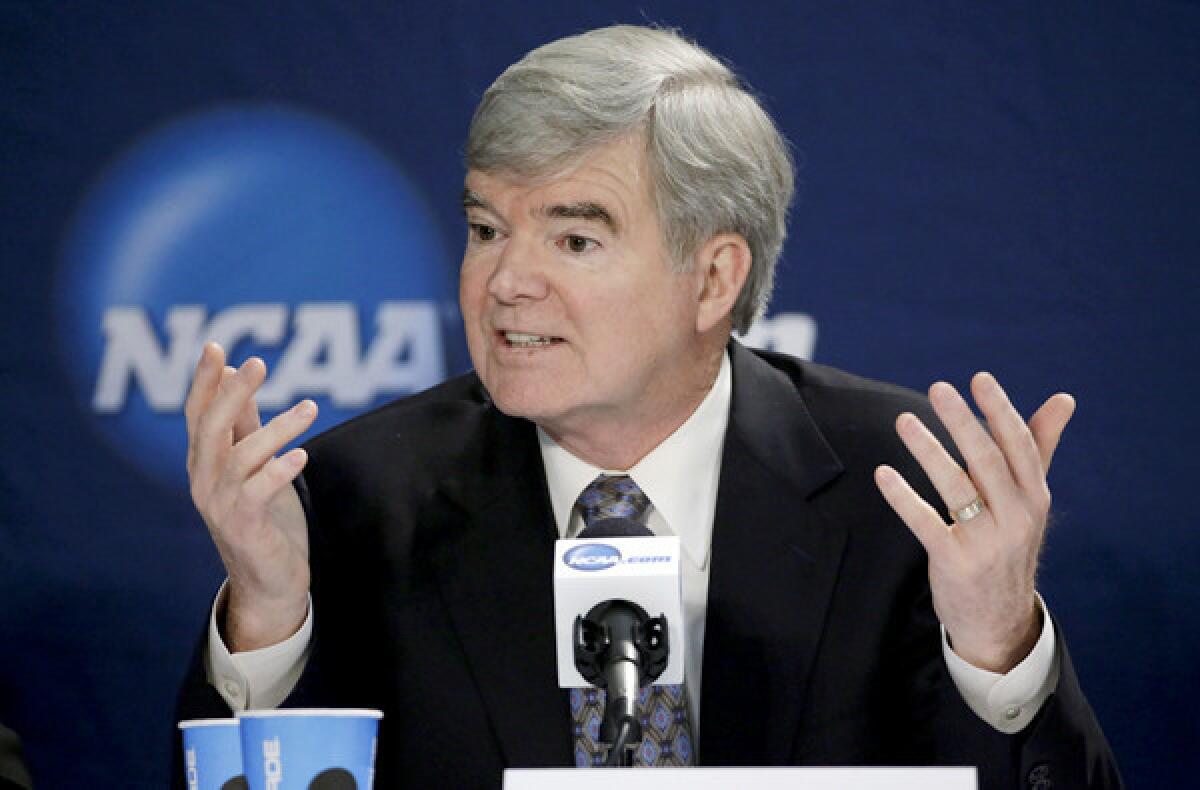NCAA chief Mark Emmert calls unionizing college athletes ‘ridiculous’

- Share via
ARLINGTON, Texas -- NCAA President Mark Emmert said Sunday that unionizing students is a “ridiculous idea” to solving the problems of intercollegiate athletics.
“It would blow up everything about the collegiate model of athletics,” Emmert said during a morning press conference at AT&T Stadium. “There are some people who think that might be fine. I don’t think that represents the views of anybody up here right now.”
Northwestern football players recently received regional clearance from the National Labor Relations Board to unionize as they seek more benefits for student athletes.
Emmert said the potential implications of the ruling “are profound to say the least,” but he said the notion of unionization would “strike most people as a grossly inappropriate solution to the problem.”
Emmert and the NCAA have been on the defensive as the governing body has been challenged legally on several legislative fronts.
In a break from the convention, Emmert was flanked on stage by the NCAA “steering” committee that included three university presidents and Big 12 Commissioner Bob Bowlsby.
Emmert, who deferred many questions asked of him to the panel, said the NCAA is moving rapidly toward significant reforms that would provide more power and benefits for college athletes.
Bowlsby, the former athletics director at Stanford, said the NCAA is a membership organization that must solve its own problems. He said the organization “is not a one-eyed ogre that exists on its own. Whatever it is today we made it that way.”
The steering committee is working toward a summer resolution that could lead to the higher-revenue “Big 5” conferences being able to provide additional “full cost of attendance” stipends.
The proposal has previously been blocked by the full NCAA membership, which includes 340 institutions.
Emmert and Bowlsby also reiterated the NCAA is powerless on the “one-and-done” issue that forces basketball players to play a year of college before entering the NBA.
The 19-year-old age limit rule was collectively bargained by the NBA and its players’ association.
Bowlsby said most college administrators would like to see the baseball model in which players have the choice of turning pro out of high school. If they decided to attend college, however, they must stay three years.
“I really think the NFL and NBA have been irresponsible in not providing other legitimate opportunities for kids that really don’t want to go college,” Bowlsby said. “I think that’s really where the rubber meets the road.”
More to Read
Go beyond the scoreboard
Get the latest on L.A.'s teams in the daily Sports Report newsletter.
You may occasionally receive promotional content from the Los Angeles Times.











